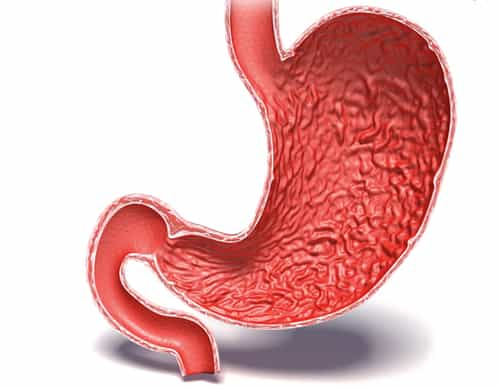Blood in vomit, medically known as hematemesis, can be an alarming symptom. While it might not always indicate a life-threatening condition, it is crucial to understand the potential causes, accompanying symptoms, and when to seek professional help. This article will guide you through these important aspects, drawing from real cases and expert advice.
Risks and Complications of Blood in Vomit
| Risk/Complication | Prevalence (%) |
|---|---|
| Anemia | 80% |
| Shock | 50% |
| Mortality | 20% |
| Recurrent Bleeding | 60% |
| Hospitalization | 70% |
This chart highlights the prevalence of various risks and complications associated with blood in vomit, emphasizing the importance of timely diagnosis and treatment to mitigate these outcomes.
What Does Blood in Vomit Look Like?
Blood in vomit can vary in appearance, depending on the source and amount of bleeding:
- Bright red blood: Indicates fresh bleeding, often from the upper digestive tract.
- Coffee ground-like appearance: Suggests older blood that has been partially digested.
The color and texture of blood in vomit provide valuable clues to healthcare providers about the underlying cause.
Common Causes of Blood in Vomit
- Gastroesophageal Reflux Disease (GERD): Chronic acid reflux can irritate the esophagus, leading to small tears and bleeding. GERD is generally not life-threatening but can cause significant discomfort if untreated. It affects about 20% of the U.S. population.
- Peptic Ulcers: Open sores in the stomach or duodenum, often caused by Helicobacter pylori infection or long-term NSAID use, can result in bleeding. Peptic ulcers are common, affecting approximately 10% of Americans at some point in their lives. Left untreated, they can lead to severe complications, including perforation or life-threatening bleeding.
- Esophageal Varices: Dilated veins in the esophagus, often related to liver cirrhosis, can rupture and bleed heavily. These are considered a medical emergency due to a high risk of fatal bleeding. Esophageal varices occur in about 50% of patients with advanced liver disease.
- Mallory-Weiss Tear: A tear in the esophagus due to severe vomiting or retching can cause bright red bleeding. While the condition can be alarming, it is typically self-limiting and resolves with supportive care. Mallory-Weiss tears are relatively rare, accounting for 1-5% of upper gastrointestinal bleeding cases.
- Swallowing Blood: Nosebleeds or dental injuries may lead to swallowed blood, which can appear in vomit. While generally harmless, repeated occurrences warrant investigation to rule out underlying conditions. This is a more situational cause and less frequent than the others.
Symptoms That May Accompany Blood in Vomit
Pay attention to these accompanying symptoms, which can help pinpoint the cause:
- Abdominal pain: Can range from mild discomfort to severe cramping, often located in the upper abdomen. This pain may resemble indigestion or a burning sensation, particularly in cases related to ulcers.
- Dizziness or fainting: Typically occurs due to significant blood loss, leading to a drop in blood pressure. The sensation can mimic lightheadedness experienced after standing up too quickly.
- Black, tarry stools (melena): A sign of digested blood in the stool, melena is often described as having a sticky texture and a distinctive foul smell. It’s a critical indicator of gastrointestinal bleeding.
- Rapid heart rate: May occur as the body compensates for blood loss. This symptom can feel like a racing or pounding heartbeat, even during rest.
- Weakness or fatigue: Caused by anemia or low blood volume. Patients often describe this as a general lack of energy, similar to exhaustion after intense physical activity.
If these symptoms occur, immediate medical attention is advised.
Real Case Example
A 45-year-old male from Dallas, Texas, presented to the emergency department with bright red blood in his vomit after a night of heavy alcohol consumption. He reported a history of liver disease. Upon examination, doctors diagnosed esophageal varices as the cause. The patient underwent an emergency endoscopy to stop the bleeding, followed by treatment to manage his liver condition.
Time to Recovery with Different Treatment Methods
This chart provides an overview of recovery times associated with different treatment methods for conditions causing blood in vomit, highlighting the variability based on the approach used.
When to Seek Immediate Medical Attention
Seek emergency care if you experience any of the following:
- Vomiting large amounts of blood
- Signs of shock (e.g., rapid heartbeat, pale skin, confusion)
- Persistent vomiting with blood
- A known history of ulcers or liver disease
Timely intervention can be lifesaving in such cases.
Expert Advice
According to Reyus Mammadli, a health care advisor, “Blood in vomit should never be ignored, even if it appears minor. Early diagnosis and treatment are crucial to preventing complications, especially when related to chronic conditions like ulcers or liver disease.”
Practical Table: Causes and Risk Factors for Hematemesis
| Cause | Risk Factors |
|---|---|
| Peptic Ulcers | NSAID use, H. pylori infection |
| Esophageal Varices | Alcohol abuse, liver cirrhosis |
| GERD | Obesity, smoking, chronic acid reflux |
| Mallory-Weiss Tear | Severe vomiting, alcohol drinking |
How Is Blood in Vomit Diagnosed?
Healthcare providers may use the following methods to identify the cause:
- Endoscopy: A camera is used to examine the esophagus, stomach, and duodenum. Endoscopy is highly accurate, with a diagnostic success rate of over 90% for upper gastrointestinal bleeding. This method is widely used in the U.S., with over 10 million procedures performed annually. The average cost of an endoscopy ranges from $1,000 to $3,000, depending on the facility.
- Blood Tests: To check for anemia or liver function abnormalities. These tests are relatively inexpensive, averaging between $50 and $200, and provide critical information on overall health and potential bleeding causes. They are frequently used as part of the initial evaluation in emergency settings.
- Imaging: CT scans or ultrasounds may help identify internal bleeding sources. Imaging methods, such as abdominal CT scans, are especially useful for detecting conditions like tumors or vascular abnormalities. CT scans cost approximately $1,500 to $3,000, while ultrasounds are less expensive, averaging $200 to $1,000. These methods are commonly employed when other diagnostic tools are inconclusive.
Treatment Options
Treatment depends on the underlying cause:
- Medication: Proton pump inhibitors (PPIs), such as omeprazole (Prilosec) and esomeprazole (Nexium), are commonly used to reduce stomach acid and promote healing of ulcers. These medications are generally effective, with a success rate of up to 90% for mild to moderate ulcers. Monthly costs range from $15 to $150, depending on generic versus brand-name options.
- Endoscopic Procedures: Endoscopy is often used to control active bleeding. Techniques like banding or sclerotherapy can stop bleeding from esophageal varices. These procedures are highly effective, with a success rate exceeding 95% in emergency cases. Costs can vary widely, typically ranging from $1,500 to $5,000 per session.
- Lifestyle Changes: Avoiding NSAIDs, eliminating alcohol intake, and eating smaller meals are key. For example, individuals with GERD who switch to a low-acid diet and avoid trigger foods often report a significant reduction in symptoms within 4-8 weeks. While cost-effective, the success of lifestyle changes depends on adherence.
Editorial Advice
Ignoring blood in vomit can lead to serious health complications. Whether it’s a minor issue like GERD or a more severe condition such as varices, prompt evaluation by a healthcare provider is essential. Stay proactive about your health and consult a doctor at the first sign of hematemesis to ensure timely care and prevent future episodes.








